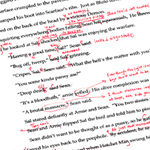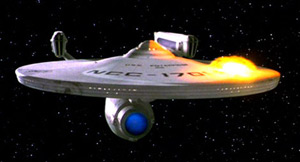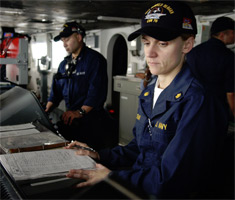I’m considering a blogging experiment. I have a number of things to flesh out in my Hudson Confederacy universe, and I think I might just start publishing them as blog entries here. They won’t be spoilers, and they won’t really be canon either – I figure until this stuff shows up in an actual book, it’s just rumor. Still, it might make for some interesting reading while other books in that universe work their way through edits.
It started when I found myself daydreaming a little about the Navy of the Hudson Confederacy, and after listening to a podcast on building a space navy, I realized I need to back up and look at the history. After all, a Navy is there to perform missions in support of strategic goals, and those strategic goals come from both the surrounding environment and how the nation perceives itself. So, I had to ask myself, how does the Hudson Confederacy see itself? That, in turn, took me even further back to seeing where it came from.
Why dig so far back? Well, any student of US politics today can’t help but see that many of the forces date all the way back to religious persecution that drove some of the early colonists to cross the Atlantic in the first place. For that, of course, you then need to go further back to the Anglican church of King Henry VIII, then back to the Reformation of Martin Luther, and ultimately back to the politics of the Catholic church in the 1400s.
So… how far back am I going? Well, in the brief back-story of the universe given in Beneath the Sky, humanity shot out to colonize rapidly once they finally got FTL. This led to a vast union called The Republic of Man, usually referred to now as the Old Republic. Sorry, no Jedi Knights. Anyway, that eventually shattered, leaving the original core as the Solarian Union and giving birth to dozens of smaller nations The largest two of those were the League of Catai and the Hudson Confederacy, where the bulk of my space opera will occur. While the League has done well for itself, the Hudson Confederacy has suffered through two civil wars since establishing its independence.
My intent is to look at the forces that eventually broke up the Old Republic, how that breakup occurred, and what that meant for the various nations that resulted, specifically the Confederacy. Then, I’m going to look at the two civil wars that rocked the Confederacy. I’m thinking of the first one as mostly a rocky transition from a loose gathering of colonies into something with stronger central control – a bit like if the US’s transition from the Articles of Confederation to the 1789 Constitution had resulted in a civil war where the 13 colonies were reduced to 9 states and some foreign neighbors.
But it’s the most recent civil war that is both drawing my attention and completely stymieing my imagination. A fair amount what is going into the Father Chessman saga (Ships of My Fathers, Debts of My Fathers, etc) is the fallout from that civil war. It left a lot of bad blood, but while I know a fair amount about how the war was fought, I haven’t really figured out what led to it. That seems, well… important.
So, I’ll be making history here, literally. Well, make-believe, future history, but you get the idea. Tune in and see how it develops.





 Furthermore, a lot more can break on a warship than on a small passenger ship. In fact, warships frequently seek out situations where things break spectacularly. No longer is one lonely crewman replacing a leaky fuel line. Instead, it’s a team of thirty repairing a hull breach and welding the engine mounts back into place.
Furthermore, a lot more can break on a warship than on a small passenger ship. In fact, warships frequently seek out situations where things break spectacularly. No longer is one lonely crewman replacing a leaky fuel line. Instead, it’s a team of thirty repairing a hull breach and welding the engine mounts back into place. Standing watch is probably the most boring thing you can imagine, because you’re essentially waiting around all day for something to go wrong. This looks like a prime candidate for computer automation. After all, the computer can wait 24/7 for something to happen, and it doesn’t need a chair. Still, it’s important to have an actual person there, because when something does go wrong – and sooner or later, it will – then you want to have a live body there, paying attention, and ready to take action. There are quite a few things that could wait five or ten minutes for you to wake up and get dressed, but the matter/anti-matter injection valves probably can’t wait.
Standing watch is probably the most boring thing you can imagine, because you’re essentially waiting around all day for something to go wrong. This looks like a prime candidate for computer automation. After all, the computer can wait 24/7 for something to happen, and it doesn’t need a chair. Still, it’s important to have an actual person there, because when something does go wrong – and sooner or later, it will – then you want to have a live body there, paying attention, and ready to take action. There are quite a few things that could wait five or ten minutes for you to wake up and get dressed, but the matter/anti-matter injection valves probably can’t wait. And sleep? Sleep is kind of a placeholder for all the drawbacks to those lazy organic crews. They keep wanting to sleep, and that’s on top of wanting to eat food several times a day. I figure about the hardest you can push someone is twelve-hour shifts, seven days a week. We’re not talking about heavy physical labor in the cotton field, but keeping alert for twelve hours is a challenge. You’d be a lot better off with eight-hour shifts and enough crew to allow other downtime. Toss in a galley, maybe a small gym or some recreation, and the crew to manage all that. Pretty soon your little eight-man ship is ballooning up to twenty or more.
And sleep? Sleep is kind of a placeholder for all the drawbacks to those lazy organic crews. They keep wanting to sleep, and that’s on top of wanting to eat food several times a day. I figure about the hardest you can push someone is twelve-hour shifts, seven days a week. We’re not talking about heavy physical labor in the cotton field, but keeping alert for twelve hours is a challenge. You’d be a lot better off with eight-hour shifts and enough crew to allow other downtime. Toss in a galley, maybe a small gym or some recreation, and the crew to manage all that. Pretty soon your little eight-man ship is ballooning up to twenty or more.